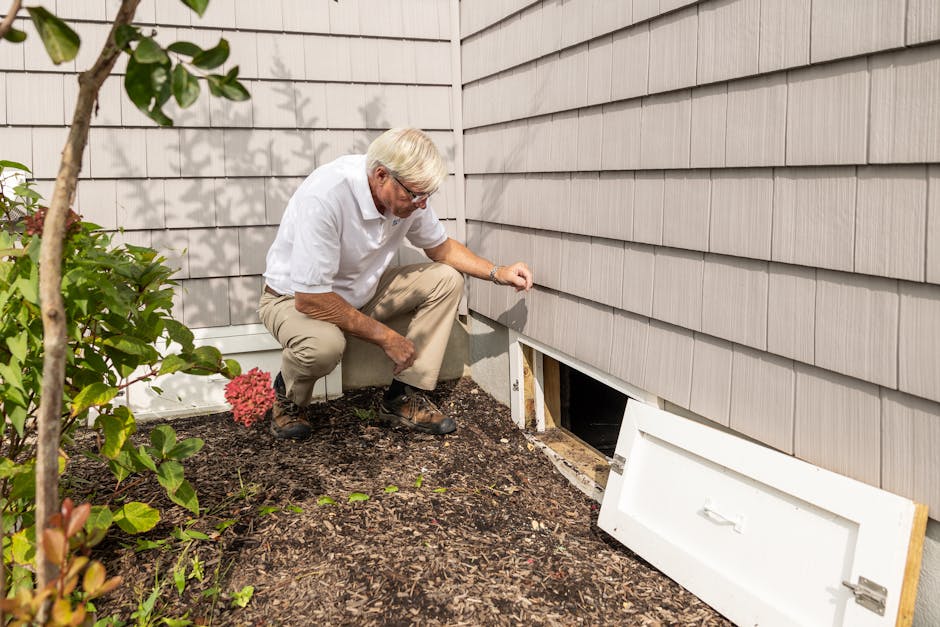Florida Water Damage: 5 Essential Tips
Why Florida Water Damage is a Critical Homeowner Challenge
Florida water damageis a significant issue, affecting more homes here than in any other state. The state’s unique climate—with its hurricanes, tropical storms, daily rainfall, and high humidity—creates the perfect conditions for both sudden catastrophic events and slow, hidden deterioration.
Quick Answer for Florida Water Damage:
- Most Common Causes:Hurricanes, broken pipes, appliance leaks, poor drainage, and improperly installed water lines
- Immediate Action:Turn off main water valve, ensure electrical safety, document damage with photos
- Average Costs:$1,300 to $5,600 for restoration, varying by water type (clean $3-4/sq ft, gray $4-7/sq ft, black $7-7.50/sq ft)
- Insurance Coverage:Sudden/accidental damage usually covered, but gradual damage and floods typically excluded
- Professional Help Needed:For sewage contamination, extensive damage, or when mold is present
Florida’s sandy soil can cause underground water lines to fail, while intense weather constantly tests a home’s defenses. High humidity accelerates mold growth and structural issues from even minor leaks.
“If you’re a Florida homeowner, you know that property damage caused by water leaks is an all-too-common occurrence,”notes one property damage law firm.“From burst pipes to hurricane surges, water damage can leave your home in a devastated state.”
The difference between sudden and gradual water damage is critical for insurance claims. Insurers may try to classify damage to avoid coverage, so proper documentation and understanding your rights are essential.

Identifying Water Damage in Your Florida Home
Water damage in Florida homes can be obvious, like a burst pipe, or hidden, causing damage for weeks or months before being noticed. These hidden leaks are especially common due to the state’s high humidity.
Be alert for these key signs:
- A persistent musty odor, which often indicates mold or mildew growth in damp, hidden spaces.
- Physical changeslike warped or spongy floors, peeling or bubbling paint, and water stains on walls or ceilings, especially near vents and plumbing.
- An unexpected jump in your water bill, which can signal a hidden leak.
To confirm a leak, turn off all water-using appliances and check your water meter. If the meter is still moving, you likely have a leak.

Signs of Sudden vs. Gradual Water Damage
Understanding the difference between “sudden” and “gradual” damage is crucial forFlorida water damageinsurance claims.
Sudden water damagehappens quickly and is usually covered by standard homeowners insurance as “sudden and accidental.” Examples include burst pipes, major appliance failures, or storm flooding from a hurricane.
Gradual water damageoccurs over time and is often excluded from coverage. This includes slow leaks from faucets, faulty seals around showers, or damage from high humidity. Florida’s climate can turn minor gradual leaks into major problems with mold and rot, which insurers often attribute to poor maintenance.
For a deeper dive into spotting these issues, check outSome Signs of Water Damage in Your Home.
Common Causes of Florida Water Damage
Water damage in Florida has many causes, often related to its unique environment.
- Hurricanes and Tropical Storms:Beyond storm surge, wind-driven rain can penetrate small openings, and heavy rainfall can overwhelm drainage systems, causing localized flooding.
- Plumbing Leaks:Florida’s shifting sandy soil puts stress on underground water lines, leading to leaks and pipe failures.
- Appliance Malfunctions:Dishwashers, washing machines, and water heaters are common culprits. AnAir Conditioning Leak Orlandocan also cause significant damage, as AC units run constantly.
- Clogged Gutters:During Florida’s heavy thunderstorms, clogged gutters cause water to back up, potentially leading to foundation issues orRoof Ceiling Leaks.
What to Do Immediately After Finding Water
Finding water damage requires quick, decisive action to protect your family, minimize damage, and support your insurance claim. Follow these steps immediately:
- Prioritize Safety:Water and electricity are a dangerous mix. If water is near outlets or wiring, do not touch anything. If you can do so safely, turn off the power to the affected area at the electrical panel. When in doubt, shut off the main breaker.
- Stop the Water Source:This is the most critical step to prevent further damage. Locate and turn off your home’s main water shut-off valve. It’s typically found where the main water line enters the house, such as a utility room or near the water heater.
- Document the Damage:Use your phone to take extensive photos and videos of the water source, the affected areas, and any damaged property. This documentation is crucial evidence for your insurance claim.
- Contact Professionals:Even if the damage seems minor, call a professional restoration company. Water can seep into hidden areas, and they have the equipment to properly dry porous materials (drywall, carpet) that often need replacement and non-porous materials (tile, metal) that can be saved.

Understanding Water Contamination Levels
Professionals classifyFlorida water damageinto three categories based on contamination. This determines the health risks and cleanup process.
| Water Category | Source | Health Risk | Typical Examples |
|---|---|---|---|
| Clean Water (Category 1) | Originated from a sanitary source | Minimal to low | Leaky faucet, broken water supply line, melting ice, overflowing bathtub or sink (with clean water), dishwasher overflow (from supply line) |
| Gray Water (Category 2) | Contains a significant level of chemical, physical, or biological contaminants | Significant (can cause illness if ingested or exposed) | Washing machine overflow, toilet overflow (with urine, no feces), sump pump failures, water from a broken aquarium, water from a dishwasher (containing food particles) |
| Black Water (Category 3) | Grossly contaminated and contains pathogenic agents | High (can cause severe illness or death if ingested or exposed) | Sewage backup, river flooding, storm surge, toilet overflow (with feces), contaminated ground surface water, water from hurricanes or tropical storms entering through the ground |
In Florida’s warm climate, clean water can become contaminated within hours. Any water entering from the ground during a storm is automatically considered Category 3 black water. For more details, seeSome Different Types of Water Damage.
When to Call a Professional Restoration Company
While DIY is tempting, some situations demand professional help to prevent long-term issues.
- Extensive Damage:If water has spread to multiple areas or soaked into walls and floors, you need industrial-grade equipment for proper drying.
- Sewage Contamination:Black water (Category 3) is a serious biohazard and requires professional handling and disposal.
- Mold Presence:If you see or smell mold, professionals are needed for safe remediation to prevent it from spreading.
- Structural Concerns:Warped floors, bowing walls, or sagging ceilings indicate potential structural damage that requires expert assessment.
Professional companies followIICRCstandards and have the tools to dry your property thoroughly. For assistance in the Orlando area, considerWater Restoration Services Orlando.
Navigating Florida Water Damage Insurance Claims and Costs
WhenFlorida water damageoccurs, understanding the potential costs is crucial. The average restoration cost in Florida ranges from$1,300 to $5,600, but this varies widely. Key factors include the severity of the damage and the water category:
- Clean waterdamage costs about$3 to $4 per square foot.
- Gray waterdamage costs$4 to $7 per square foot.
- Black watercontamination costs$7 to $7.50 per square footor more.
Geographic location and labor fees also impact the final price. Acting quickly to prevent clean water from becoming contaminated can save you thousands. For help with the claims process, our team handlesWater Damage Claims Orlandoand can provide expert guidance.
Understanding Your Homeowner’s Insurance Policy
Your standard Florida homeowners’ insurance policy covers some water damage but has important exclusions.
- Sudden and Accidental Damage:Most policies cover events like a burst pipe or a sudden appliance hose failure.
- Gradual Damage Exclusions:Slow, long-term leaks are often not covered, as insurers may classify them as a maintenance issue.
- Flood Insurance:Standard policies do not cover flood damage (water entering from the ground up). This requires a separate policy through the NFIP or a private insurer.
- Hurricane Deductibles:For hurricane-related damage, you may have a separate, higher deductible, often calculated as a percentage (e.g., 2%) of your home’s insured value. On a $300,000 home, that’s a $6,000 deductible.
Insurance policies can be complex. To understand how professionals can help, seeWhy Hire a Public Adjuster for Property Damage.
What to Do if Your Claim is Denied or Underpaid
A denied or underpaid claim is frustrating, but you have options. Insurers often cite lack of maintenance, policy exclusions, or insufficient documentation as reasons for denial.
Your first step is tofile an appeal. Request a detailed written explanation for the decision and organize all your documentation, including photos, repair estimates, and all correspondence with the insurer.
This is wherethe role of a public adjusteris invaluable. A public adjuster works exclusively for you, not the insurance company. With over 50 years of experience, we understand how insurers operate and can re-evaluate your damage, review your policy, and negotiate on your behalf to secure a fair settlement.
If you’re facing a denied claim, you don’t have to handle it alone. For more guidance, read our guide onWhat to Do When Your Home Insurance Claim Is Denied.
Prevention and Long-Term Consequences
UntreatedFlorida water damagecan lead to a cascade of problems, especially in our hot, humid climate. What starts as a small leak can escalate into major structural issues, health hazards, and financial burdens. The primary concerns are mold growth, wood rot, and a decline in property value. Fortunately, quick action and proactive maintenance can prevent most of these long-term issues.

Long-Term Consequences of Untreated Florida Water Damage
Ignoring water damage can lead to severe consequences:
- Mold Growth:Florida’s climate is a breeding ground for mold, including toxic varieties likeStachybotrys chartarum (black mold). Mold can spread through HVAC systems and pose serious health risks, as noted by the CDC.
- Structural Damage:Water weakens wood, causing rot in floor joists, wall studs, and roof supports. This can compromise your home’s safety, leading to sagging floors or even ceiling collapse.
- Foundation Problems:Persistent moisture around the foundation can cause cracks and erosion, threatening your entire home’s stability.
- Electrical Hazards:Moisture near wiring can cause short circuits, damage appliances, and create fire risks.
- Pest Infestations:Damp, decaying wood attracts termites, carpenter ants, and other pests that cause further damage.
If you suspect mold, professional help is crucial. Our team can assist withMold Damage Claims Orlandoto steer the insurance process.
Proactive Steps for Florida Homeowners
A strong defense is the best way to combatFlorida water damage. Take these proactive steps to protect your home:
- Regular Inspections:Routinely check under sinks, around toilets, and near appliances for any signs of leaks. Have your water heater inspected annually.
- Install Leak Detectors:Placewater leak detection systemsnear high-risk appliances. These devices can send alerts to your phone, allowing for immediate action.
- Maintain Gutters:Keep gutters and downspouts clean to prevent water from overflowing and pooling around your foundation. Ensure downspouts direct water at least 5-10 feet away from the house.
- Monitor Water Bills:An unexplained spike in your water bill is a common sign of a hidden leak.
- Check Appliance Hoses:Regularly inspect hoses on your washing machine, dishwasher, and refrigerator for wear and tear.
- Prepare for Hurricanes:Before storm season, inspect your roof, windows, and doors for vulnerabilities. A solid emergency plan is essential. For detailed advice, see our guide onHow to Prepare Your Home for a Hurricane.
- Consider a Sump Pump:If you live in a flood-prone area, a sump pump can automatically remove water from your basement or crawl space.
These preventive measures are a small investment compared to the cost and stress of major water damage restoration.
A Special Florida Problem: Flood-Damaged Vehicles
Beyond home damage, Florida leads the nation in another water-related issue: flood-damaged vehicles. With 82,100 of the nation’s 482,000 flood-damaged cars, many of these vehicles are cleaned up and sold to unsuspecting buyers, hiding serious problems.
Floodwater seeps into a car’s electrical systems, engine, and computer, causing corrosion and long-term reliability issues.Electric vehicles (EVs) face even greater risks, as prolonged submersion can compromise battery packs, leading to short circuits or fires. After Hurricane Ian, this became a significant concern, promptingUSFA FEMA to issue guidance on battery fire hazards after flooding.

How to Spot and Avoid a Flood-Damaged Car
Protect yourself when buying a used car with these detective steps:
- Check the Paperwork:Look for title brands like ‘salvage’ or ‘flood.’ Be aware that some sellers “wash” titles by transferring them through states with lax regulations.
- Use Online Tools:Before viewing the car, run its VIN through theCarfax free flood check tool, theNational Motor Vehicle Title Information System, and theNational Insurance Crime Bureau’s (NICB) free database.
- Trust Your Senses:A musty, mildew-like odor is a major red flag. An overwhelming smell of air freshener can also be suspicious.
- Inspect Thoroughly:
- Pull back carpets to look for mud, sand, or water stains.
- Test all electronics, including the radio, windows, and gauges.
- Look for moisture or fogging inside headlights and taillights.
- Check for unusual rust on screws and bolts under the hood.
- Get a Professional Inspection:Always have a trusted mechanic perform a pre-purchase inspection. This is the best way to uncover hidden damage.
Taking these precautions can save you from the significant financial and safety risks of owning a flood-damaged vehicle.
Conclusion
Living in Florida means dealing with the constant threat ofFlorida water damage, from sudden hurricane flooding to slow, hidden leaks. As we’ve covered, the key to protecting your home and finances is a combination of proactive prevention and swift, informed action.
Remember the most critical takeaways:
- Act Fast:Your immediate response—ensuring safety, stopping the water source, and documenting everything—can dramatically reduce the overall damage and cost.
- Prevention is Key:Regular maintenance, from cleaning gutters to inspecting plumbing, is your best defense against water intrusion.
- Understand Your Insurance:Navigating claims can be challenging. Knowing the difference between sudden and gradual damage, and understanding your policy’s exclusions for floods and specific hurricane deductibles, is vital.
Facing a water damage claim alone can be overwhelming, especially when dealing with an insurance company focused on minimizing its payout. You don’t have to steer this complex process by yourself.
With over 50 years of experience, Global Public Adjusters, Inc. works exclusively for you, the policyholder. We know how to counter the tactics insurers use, properly document your loss, and fight for the maximum settlement you are entitled to. Our goal is to ensure you have the resources to fully restore your home and get your life back to normal.
For expert help with your insurance claim, trust the experienced team at Global Public Adjusters, Inc. to advocate for you.



